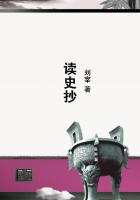THE TEXAS RANGERS
I came from Texas, like the bulk of you punchers, but a good while before the most of you were born. That was forty-odd years ago--and I've been on the Colorado River ever since. That's why they call me Colorado Rogers. About a dozen of us came out together. We had all been Texas Rangers, but when the war broke out we were out of a job. We none of us cared much for the Johnny Rebs, and still less for the Yanks, so we struck overland for the West, with the idea of hitting the California diggings.
Well, we got switched off one way and another. When we got down to about where Douglas is now, we found that the Mexican Government was offering a bounty for Apache scalps. That looked pretty good to us, for Injin chasing was our job, so we started in to collect. Did pretty well, too, for about three months, and then the Injins began to get too scarce, or too plenty in streaks. Looked like our job was over with, but some of the boys discovered that Mexicans, having straight black hair, you couldn't tell one of their scalps from an Apache's. After that the bounty business picked up for a while. It was too much for me, though, and I quit the outfit and pushed on alone until Istruck the Colorado about where Yuma is now.
At that time the California immigrants by the southern route used to cross just there, and these Yuma Injins had a monopoly on the ferry business. They were a peaceful, fine-looking lot, without a thing on but a gee-string. The women had belts with rawhide strings hanging to the knees. They put them on one over the other until they didn't feel too decollotey. It wasn't until the soldiers came that the officers' wives got them to wear handkerchiefs over their breasts. The system was all right, though. They wallowed around in the hot, clean sand, like chickens, and kept healthy. Since they took to wearing clothes they've been petering out, and dying of dirt and assorted diseases.
They ran this ferry monopoly by means of boats made of tules, charged a scand'lous low price, and everything was happy and lovely. I ran on a little bar and panned out some dust, so Icamped a while, washing gold, getting friendly with the Yumas, and talking horse and other things with the immigrants.
About a month of this, and the Texas boys drifted in. Seems they sort of overdid the scalp matter, and got found out. When they saw me, they stopped and went into camp. They'd travelled a heap of desert, and were getting sick of it. For a while they tried gold washing, but I had the only pocket--and that was about skinned. One evening a fellow named Walleye announced that he had been doing some figuring, and wanted to make a speech. We told him to fire ahead.
"Now look here," said he, "what's the use of going to California?
Why not stay here?"
"What in hell would we do here?" someone asked. "Collect Gila monsters for their good looks?""Don't get gay," said Walleye. "What's the matter with going into business? Here's a heap of people going through, and more coming every day. This ferry business could be made to pay big.
Them Injins charges two bits a head. That's a crime for the only way across. And how much do you suppose whisky'd be worth to drink after that desert? And a man's so sick of himself by the time he gets this far that he'd play chuck-a-luck, let alone faro or monte."That kind of talk hit them where they lived, and Yuma was founded right then and there. They hadn't any whisky yet, but cards were plenty, and the ferry monopoly was too easy. Walleye served notice on the Injins that a dollar a head went; and we all set to building a tule raft like the others. Then the wild bunch got uneasy, so they walked upstream one morning and stole the Injins'
boats. The Injins came after them innocent as babies, thinking the raft had gone adrift. When they got into camp our men opened up and killed four of them as a kind of hint. After that the ferry company didn't have any trouble. The Yumas moved up river a ways, where they've lived ever since. They got the corpses and buried them. That is, they dug a trench for each one and laid poles across it, with a funeral pyre on the poles. Then they put the body on top, and the women of the family cut their hair off and threw it on. After that they set fire to the outfit, and, when the poles bad burned through, the whole business fell into the trench of its own accord. It was the neatest, automatic, self-cocking, double-action sort of a funeral I ever saw. There wasn't any ceremony--only crying.
The ferry business flourished at prices which were sometimes hard to collect. But it was a case of pay or go back, and it was a tur'ble long ways back. We got us timbers and made a scow; built a baile and saloon and houses out of adobe; and called her Yuma, after the Injins that had really started her. We got our supplies through the Gulf of California, where sailing boats worked up the river. People began to come in for one reason or another, and first thing we knew we had a store and all sorts of trimmings. In fact we was a real live town.














